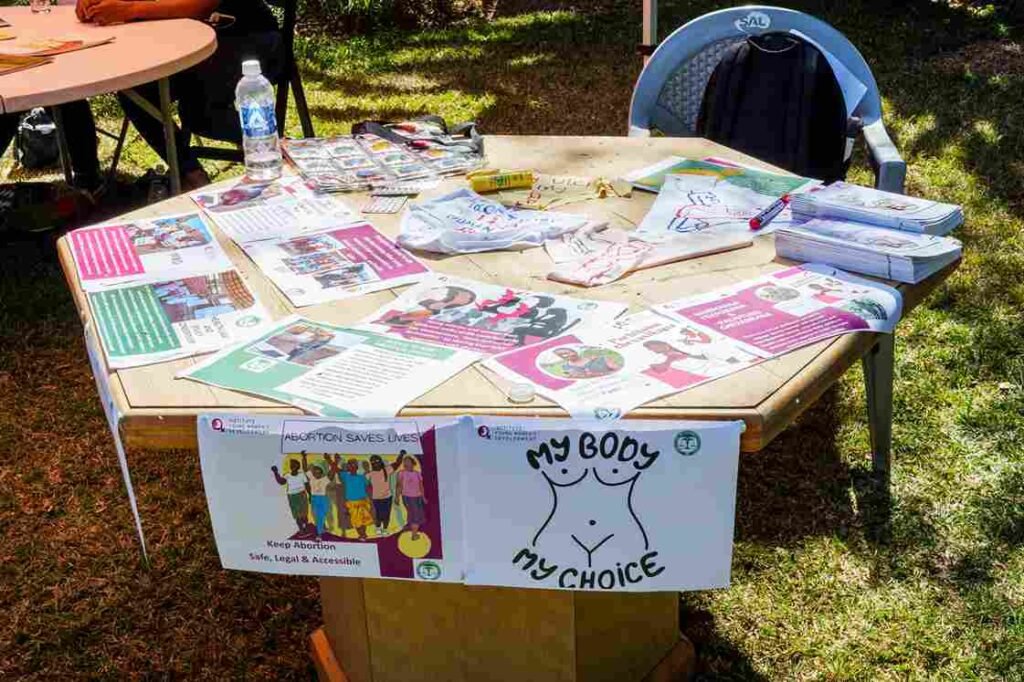Movement Building, Public Safety for LBQTs, Solidarity, Support for Violence & Trauma
Living in a world where injustices against marginalized communities are a daily reality can be overwhelming.
As a community of individuals who care deeply about LGBTQIA+ rights, we understand the pain, frustration, and desire to take action.
Many LGBTQIA+ young people find that organizing or participating in queer events and gatherings is one of the most meaningful ways to be seen and advocate for change in a society that often marginalizes them.
LGBTQIA+ people have been at the forefront of driving change throughout history. For Black, trans, and nonbinary individuals, activism is often essential for survival and progress.
However, navigating the complexities of activism while ensuring personal safety — especially in Zimbabwe — requires careful consideration.
This guide offers tips for LGBTQIA+ young people on how to engage in queer activism safely while making sure that their voices and presence are not only heard but respected.
How to Talk to Your Peers
Engaging in activism involves conversations that can be emotionally charged, especially during times of injustice. These discussions are crucial but should be approached with care.
-
Don’t Make Assumptions: People’s emotional responses to trauma are complex and diverse. Avoid assuming that everyone has the same understanding or experience of an issue.
-
Validate Their Emotions: Understand that your peers may experience a wide range of emotions — whether anger, sadness, or conflict. Acknowledging these feelings creates a space for healing and constructive conversation.
-
Educate Yourself: Become familiar with local and international LGBTQIA+ advocacy resources and thought leaders. Share trusted articles, stories, and data, but be cautious about sharing sensitive information.
-
Share Trusted Information on Social Media:
Social media can be powerful, but it requires caution. If you’re not openly out, make sure your posts don’t unintentionally expose your identity. Always share accurate, vetted resources.
Examine & Challenge Personal Bias
Activism requires us to reflect critically on our own biases. In the context of queer activism, it’s essential to be mindful of how our assumptions or unexamined privileges might impact others.
-
Recognize Your Bias: Everyone has biases, conscious or unconscious. Acknowledge them to better support those whose experiences differ from yours.
-
Commit to Education: Expand your knowledge, especially about issues faced by marginalized groups within the LGBTQIA+ spectrum (e.g., intersex, trans, or disabled individuals).
Attending Queer Events & Gatherings
In Zimbabwe, queer events are vital for creating community and driving social change. However, participation requires additional precautions.
Guiding Questions Before Attending
-
What strategies have you considered to keep yourself physically safe during the event?
-
Where will the gathering be held, and who might be there?
-
Do you have someone you can call if things go awry?
-
What past experiences have you had at queer events, and how do they influence your decision?
-
What would you do if the gathering were disrupted or if there’s a threat to your safety?
-
Are you comfortable sharing photos or information about the event or participants on social media?
-
Is it safe to present how feels most true to you?
-
How will you travel to and from the event? (Consider time of day, location sharing, safety of travel methods.)
-
What specific risks might you face based on your identity (e.g., sexual orientation, gender identity, disability)?
-
After considering all these factors, is your attendance still important to you?
Safety Tips for People Attending Queer Events in Zimbabwe
While many queer events are peaceful and supportive, there are risks associated with activism in Zimbabwe. These tips can help you stay protected:
-
Let Others Know Your Plans: Inform a trusted friend or ally where you’re going, and check in before and after the event.
-
Know Your Rights: Zimbabwe’s legal environment can be hostile, but you still have basic rights. Understand your right to free expression and know who to contact in case of an emergency or arrest.
-
Prepare for Emergencies:
-
Bring ID and emergency contacts.
-
Leave personal items like extra cash or unnecessary valuables at home.
-
Wear comfortable, protective clothing (e.g., long sleeves, pants).
-
Minimize phone usage during the event; consider disabling facial recognition or tracking features.
-
-
Don’t Engage in Dangerous Situations: If the situation feels unsafe — whether due to police presence, aggressive individuals, or other threats — do not hesitate to leave.
-
Stay Aware of Your Surroundings: Always scan the area and be mindful of exits and escape routes.
-
Cover Personal Identifiers: If you have visible tattoos, scars, or other identifiers that could be used against you, consider covering them to maintain privacy.
-
Plan for Legal Aid: Familiarize yourself with organizations that offer legal aid to LGBTQIA+ individuals in case you face harassment or legal issues.


